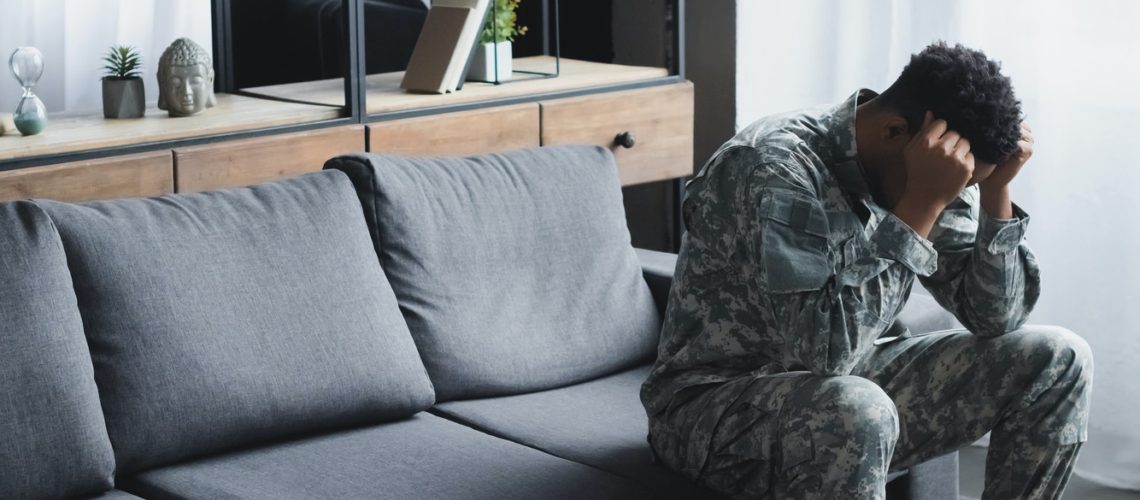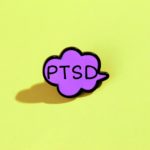Posttraumatic stress disorder in combat veterans
Returning from service in the military means struggling with problems of posttraumatic traumatic stress for many warriors. There are things you can do right now to feel better suddenly.
Veterans’ Posttraumatic Stress Disorder
Are you experiencing difficulty adjusting to regular life after serving in the military? Do you feel full of anxiety, as if you’re about to panic or blow, or feel emotionally lifeless and distant from your beloved? Do you think you’ll ever feel like yourself again?
These are typical experiences for many vets’ symptoms of posttraumatic stress disorder. Living with diagnosed Trauma is complex, and extended hospital wait times can be discouraging.
Causes of posttraumatic stress disorder (PTSD)
After experiencing severe Trauma or a current event, you may develop PTSD, often known as radiation sickness or combat stress. To defend yourself or survive a battle situation, you must organize, often known as a battle. Your heart beats quicker, blood pressure rises, and muscles contract, boosting your strength and reaction time.
You get immobilized when you’ve had too much stress in a scenario, even after the danger has passed. You cannot move on from the event because your nervous system cannot restore to its normal state of equilibrium.
Recovery from PTSD can be an entirely different experience for each person. The events that led to your PTSD were unique to you, as were your reactions to Traumatic Stress. A few typical PTSD stages might help you understand how you act and how to heal.
PTSD in veterans’ symptoms
While Symptoms usually might appear within hours or days of a traumatic event, symptoms may not appear for months or years after you return from deployment. While each veteran’s PTSD develops differently, there are four symptom clusters:
Distressing thoughts, dreams, and flashbacks make you feel like the horrific incident is happening again. Panic attacks, uncontrollable shivering, and heart palpitations are all symptoms of intense emotional and physical reactions to thoughts of the Trauma. Extreme aversion to everything that reminds you of the traumatic experience triggers terrible memories, such as people, places, ideas, or events. It includes retreating from relatives and losing interest in pleasurable activities.
Mood swings, aggression, risky behavior, extreme tiredness, poor concentration, and anticipatory anxiety are signs of being constantly vigilant, twitchy, and emotionally reactive.
Different Stages of Recovery
The stages of PTSD that most people go through on their way to dealing with the disease and learning to live with it are as follows:
Control nervous system
PTSD can make you feel helpless and insecure. But, contrary to popular belief, you have more power over your nervous system than you may know. These tips can help you modify your excitation system and relax when anxious, scared, and out of control. Breathing consciously. Take 60 breaths, focusing your attention on each ‘out-breath, to quickly settle in any scenario. You can also try this Mindful Breathing Mindfulness with a guide.
Sensory input can swiftly take you back to the battleground, much as loud noises, particular aromas, or the feel of sand in your clothes can. Everyone reacts differently, so try different things to see what works best for you.
Socialize
Face-to-face communication does not have to entail a lot of talking. Any veteran with PTSD must find someone who will listen without judging when they want to speak or hang out with them and when they don’t. That individual could be your significant other, a family member, a service buddy, or a civilian colleague. Alternatively, consider volunteering for a cause that matters to you or reaching out to those in need. It is a fantastic method to reconnect with others while reclaiming your power.
Getting involved in a Trauma support group. Connecting with other veterans dealing with similar issues might help you feel less alone and provide an essential piece of advice.
Maintain physical health
Insomnia, rage, concentration difficulties, and jitteriness are symptoms of PTSD that can be difficult on your body and eventually affect your overall health. That is why it is essential to look for oneself. Caffeine, drugs, violent video games, driving dangerously, and daring sports are all activities and behaviors that raise adrenaline levels. That’s how it feels after being in a battle zone. However, if you recognize these urges for what they are, you can make better choices to calm and safeguard your body and mind.
Allow yourself to unwind. Massage, meditation, and yoga are all relaxation techniques that can help you relax and sleep better. Look for safe ways to vent your frustrations. Kick a punching bag, pound a pillow, go for a hard run, sing along to loud music, or seek an isolated location where you may scream at your lungs.
A good diet will help your body. Foods like fatty fish, flaxseed, and walnuts are high in omega-3s, essential for emotional health. Processed and fried foods, sweets, and processed carbs are all avoided because they can increase mood swings and energy variations. Make sure you get enough rest. Anger, irritability, and moodiness are all amplified by sleep deprivation. Alcohol and narcotics should be avoided. It’s easy to turn to drugs and alcohol to dull painful memories and escape reality.
Overcome survivor guilt
Veterans with PTSD often experience feelings of guilt. You may have witnessed friends and comrades being hurt or killed. You don’t have time to properly digest these occurrences as they happen in the heat of the moment. You may blame yourself for what happened, feeling that your actions or inactivity caused someone else’s death.
Deal with flashbacks and thoughts.
Flashbacks are frequently audiovisual memories of combat for veterans with PTSD. It feels like it’s happening all over again. Therefore it’s critical to remind yourself that it’s not happening right now. Trauma experts refer to the phenomenon as “dual consciousness.”
Recognizing a distinction between your “experiencing self” and your “observing self” is called dual awareness. On the other hand, you can look out the window and understand that you’re safe. Despite what you’re going through, you’re aware that the Trauma happened before. It’s not going to happen right now.










